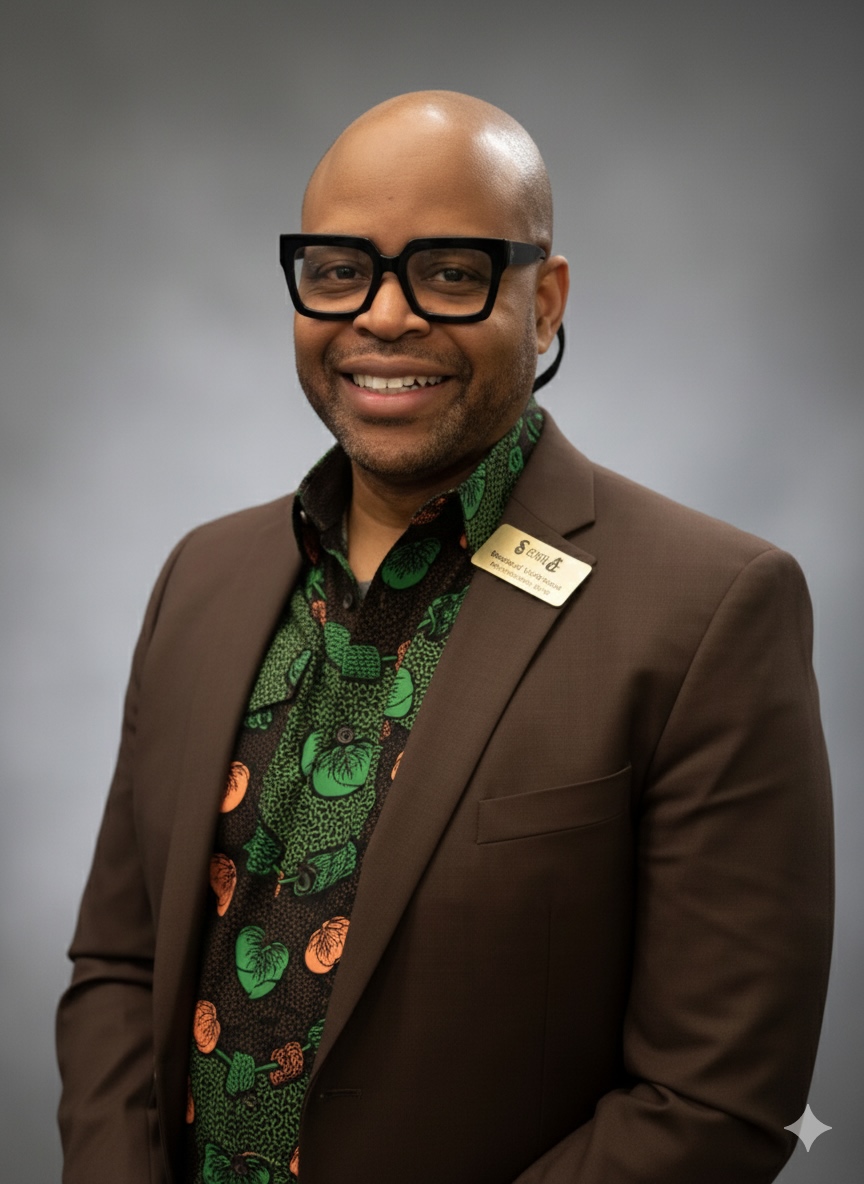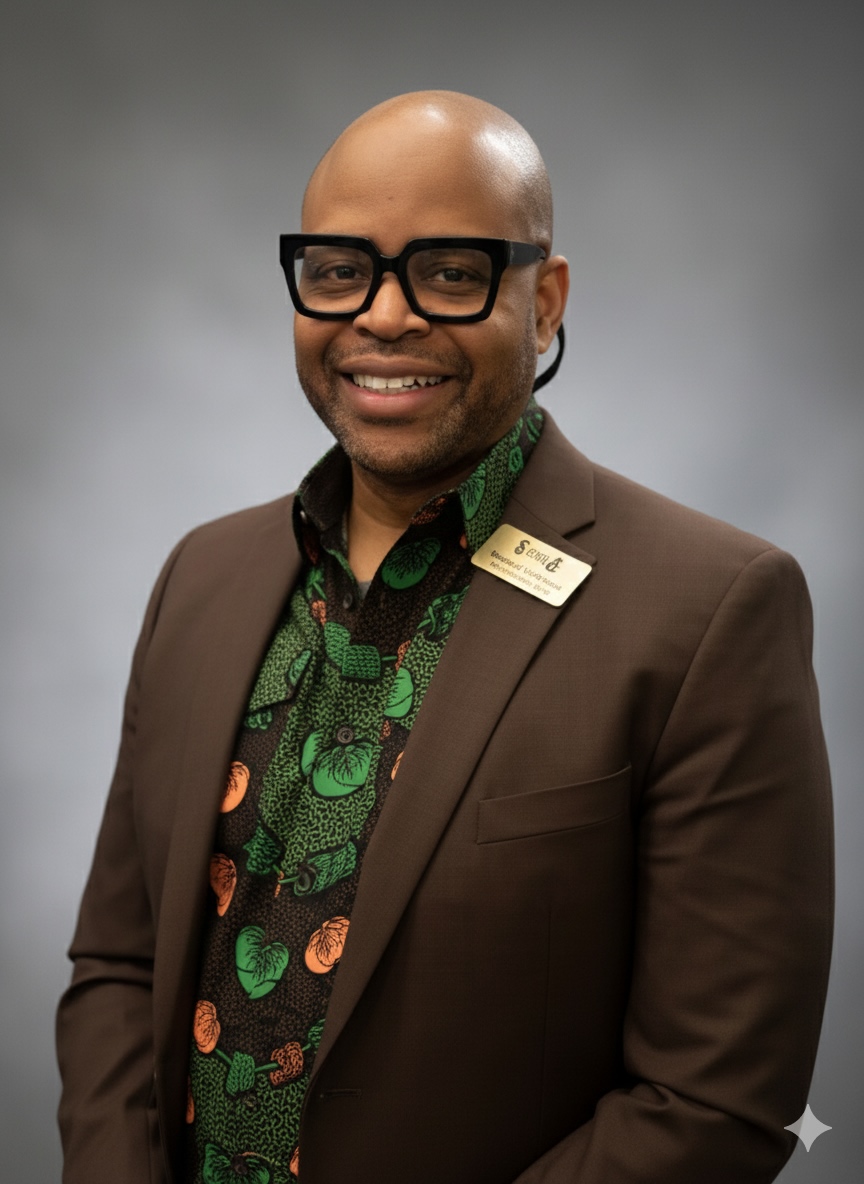

We recently had the chance to connect with Winston Wilson and have shared our conversation below.
Winston , a huge thanks to you for investing the time to share your wisdom with those who are seeking it. We think it’s so important for us to share stories with our neighbors, friends and community because knowledge multiples when we share with each other. Let’s jump in: What do you think others are secretly struggling with—but never say?
I’ve come to believe the biggest thing people struggle with but don’t say is the deep, paralyzing fear of their own potential.
It’s not the fear of failure they won’t talk about—people talk about that all the time. It’s the opposite. It’s the subconscious fear of what happens when you
actually complete the big goal, finish the project, or become the person you set out to be.
The Fear of Introspection
I’ve learned that for many, productivity isn’t about a lack of tools; it’s about a fear of looking inward. People struggle silently with the question, “What do I actually want?” It’s terrifying to take full ownership of your time and your life. It’s so much easier to let a boss, a deadline, or someone else’s expectations tell you what to do.
The unspoken struggle is admitting that you feel lost without external direction. People will complain about being busy, but they won’t admit that the busyness is a shield against having to sit down and define what truly matters to them. For me, I had to confront this head-on. My values—creativity, spirituality, health, family, and learning—are my compass now. But before I made them front and center, I was just as guilty of letting the world’s “shoulds” drown out my own inner voice.
The Shame of Clutter
Another thing people struggle with is the overwhelming weight of their own clutter, and I don’t just mean a messy desk. I’m talking about digital clutter. The hundreds of files on their desktop, the thousands of unread emails, the password they can’t remember. It’s a constant, low-grade anxiety that eats away at their focus and energy.
People don’t talk about it because it feels like a personal failing, like they’re the only ones who can’t get their digital life together. After my MS diagnosis, I realized I didn’t have the luxury of being disorganized. I must have a system, my “Second Brain,” just to stay on top of things. The unspoken truth is that most people need this, but they see it as an optional extra, not the essential foundation it is. They’re drowning in digital noise but are too embarrassed to ask for a life raft.
The Disconnect Between Goals and Values
Finally, people silently struggle with a profound sense of emptiness because the goals they are chasing are not aligned with their core values. They’ll work incredibly hard for a promotion, for example, but won’t admit to themselves, let alone anyone else, that the new title doesn’t actually make them happy.
In my office hours, I talk about setting goals for three years from now, to begin with the end in mind. The silent struggle is that most people are living for the next three days. They are so caught up in the immediate task list that they never stop to ask, “Is this getting me closer to the life I actually want to live with the people I love?”. The ultimate purpose of a productivity system isn’t just to get more done; it’s to free up your mind and your time to be present with the people who fill your spirit. That’s the real work, and it’s the conversation most people are afraid to have with themselves.
Can you briefly introduce yourself and share what makes you or your brand unique?
Winston A. Wilson, also known as Winston Archibald Wilson Jr., is a dynamic figure who integrates his extensive background as a business leader and payments processing professional with his deep passion for creativity and public speaking. He grew up in New York, is originally from Jamaica, and currently resides in Atlanta, GA.
Personal Journey and Core Identity
Wilson’s life and work are profoundly shaped by his health and faith. He was diagnosed with Multiple Sclerosis (MS) in early 2021, an event he refers to as his “battle with multiple sclerosis.” Rather than viewing the condition as a limitation, he frames his honesty and vulnerability about his MS journey as a “superpower,” transforming it into a catalyst for deeper faith, purpose discovery, and unique insights into resilience and productivity.
He is a follower of Jesus, and his faith serves as an unwavering strength and compass. His strategic approach to public speaking utilizes the biblical principle of “Finding Strength in Weakness,” emphasizing how his physical challenges have amplified his spiritual strength and clarity of purpose. His life principles are condensed into four thematic core values: Health, Family, Creativity, and Spirituality.
Great, so let’s dive into your journey a bit more. What’s a moment that really shaped how you see the world?
As a young boy who had moved to New York from Jamaica, I often felt like an outsider, a world away from the vibrant home I vaguely remembered. To cope, I found solace in the colorful pages of comic books and the endless possibilities of my own notebooks. In those pages, I could create worlds where I was the hero, where I always belonged. It was my secret refuge.
One afternoon, with my heart pounding in my chest, I took a leap of faith. I shared one of my hand-drawn stories, a world born from my imagination, with a classmate. I braced myself for the usual taunts, the laughter that often followed anything that made you different. But it never came. Instead, I saw a flicker of genuine wonder in his eyes, a shared moment of awe.
In that instant, I realized that my creativity wasn’t just an escape for me; it was a bridge to others. It was a way to connect, to share a piece of my soul and have it understood. That single moment ignited a lifelong hope within me: the profound, unshakeable belief in the power of a story to build community, to break down walls, and to transform our world.
When did you stop hiding your pain and start using it as power?
For years, I carried that hope, that belief in the power of stories, but I kept it contained, a secret fire warming only myself. I lived a different life, a more practical one, climbing the corporate ladder. The pain of feeling like an outsider, of not fully embracing my creative self, was a constant, low hum beneath the surface of my carefully constructed life. I hid it well, I thought.
Then, the corporate world I had poured so much of myself into unceremoniously spit me out. A merger, a restructuring—the details are unimportant. What mattered was the sudden, gut-wrenching feeling of being adrift, of having the carefully built scaffolding of my life torn away. The old pain, the familiar feeling of not belonging, rushed back in, sharp and overwhelming.
But this time, something was different. Instead of retreating into my notebooks, I decided to pour all of that pain, all of that uncertainty, into them. I stopped hiding. The pain became my ink, the uncertainty my muse. From that raw, vulnerable place, I wrote. That writing became “Super Loser,” a play that I poured all my struggles and hopes into. It wasn’t just a story anymore; it was my story, my pain transformed into power. And when it found an audience, when it resonated with others, I knew I had finally found my true voice.
I think our readers would appreciate hearing more about your values and what you think matters in life and career, etc. So our next question is along those lines. Is the public version of you the real you?
That’s a great question. For a long time, the answer would have been no. The “public” me was a corporate climber, someone focused on a version of success that felt practical and safe. He was organized and driven, but he was also hiding. He was hiding the creative kid who came from Jamaica and found his voice in notebooks. He was hiding the pain of feeling like an outsider. That persona was a carefully constructed suit of armor.
The man you see today—the writer, the advocate, the leader of non-profits—is what happened when that armor was shattered. When I lost my job, I lost the persona that came with it. All I had left was the vulnerable, creative person I had been suppressing.
So, is the public persona you see now the real me? Yes. It’s the most real I’ve ever been. It’s not a performance; it’s the result of a conscious choice to stop hiding and integrate all the parts of myself. The drive to help, to create, to build community—that’s not a brand. It’s the direct expression of my journey, turning the pain I once hid into the purpose I now share. This isn’t a persona; it’s my hard-won reality.
Before we go, we’d love to hear your thoughts on some longer-run, legacy type questions. What is the story you hope people tell about you when you’re gone?
Wow. That’s a powerful question. When it’s all said and done, I hope the story people tell isn’t just about the plays I wrote or the organizations I ran. I hope they tell a simpler, more human story.
I hope they say there was a boy from Jamaica who came to New York and felt like he didn’t have a voice. That for a long time, he hid that part of himself away, thinking he had to be someone else to succeed.
But then, I hope the story shifts. I hope they say that he finally learned that our real power doesn’t come from hiding our pain, but from transforming it. That he took his own journey of feeling like an outsider and tried to build a bridge with it—a bridge for other creatives, other dreamers, other people who felt like they were on the outside looking in.
Ultimately, I don’t want the story to be about me, but about the community we built. The story I hope people tell is simple: He remembered what it felt like to be voiceless, so he spent his life helping others find the stage, the page, or the microphone to share theirs.
Contact Info:
- Website: https://winstonawilson.com
- Instagram: https://instagram.com/winstonawilson
- Youtube: https://youtube.com/@WinstonAWilson














